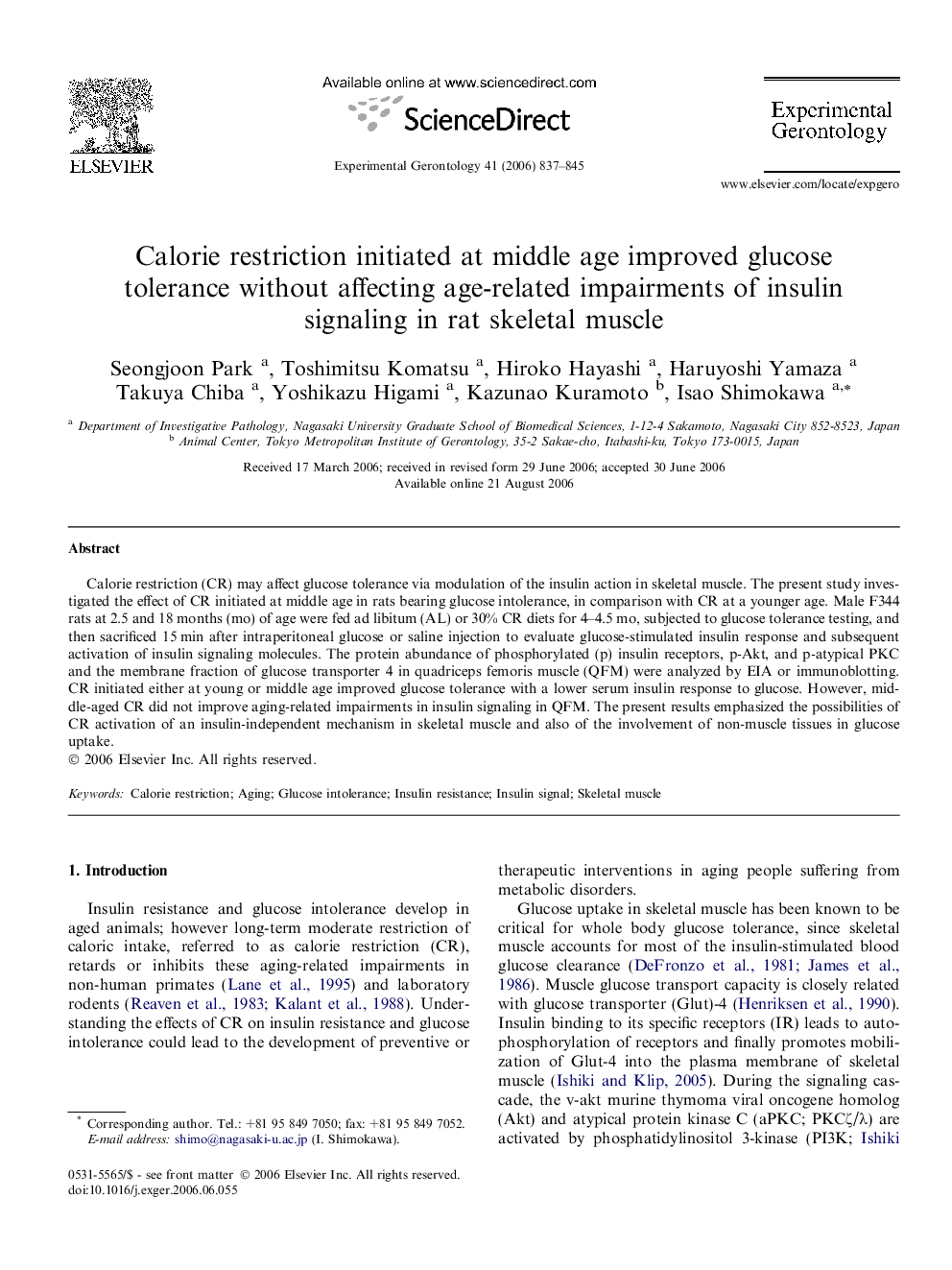| Article ID | Journal | Published Year | Pages | File Type |
|---|---|---|---|---|
| 1907414 | Experimental Gerontology | 2006 | 9 Pages |
Calorie restriction (CR) may affect glucose tolerance via modulation of the insulin action in skeletal muscle. The present study investigated the effect of CR initiated at middle age in rats bearing glucose intolerance, in comparison with CR at a younger age. Male F344 rats at 2.5 and 18 months (mo) of age were fed ad libitum (AL) or 30% CR diets for 4–4.5 mo, subjected to glucose tolerance testing, and then sacrificed 15 min after intraperitoneal glucose or saline injection to evaluate glucose-stimulated insulin response and subsequent activation of insulin signaling molecules. The protein abundance of phosphorylated (p) insulin receptors, p-Akt, and p-atypical PKC and the membrane fraction of glucose transporter 4 in quadriceps femoris muscle (QFM) were analyzed by EIA or immunoblotting. CR initiated either at young or middle age improved glucose tolerance with a lower serum insulin response to glucose. However, middle-aged CR did not improve aging-related impairments in insulin signaling in QFM. The present results emphasized the possibilities of CR activation of an insulin-independent mechanism in skeletal muscle and also of the involvement of non-muscle tissues in glucose uptake.
